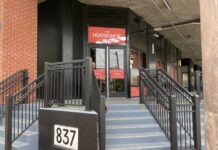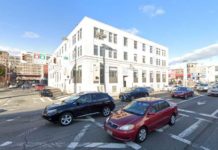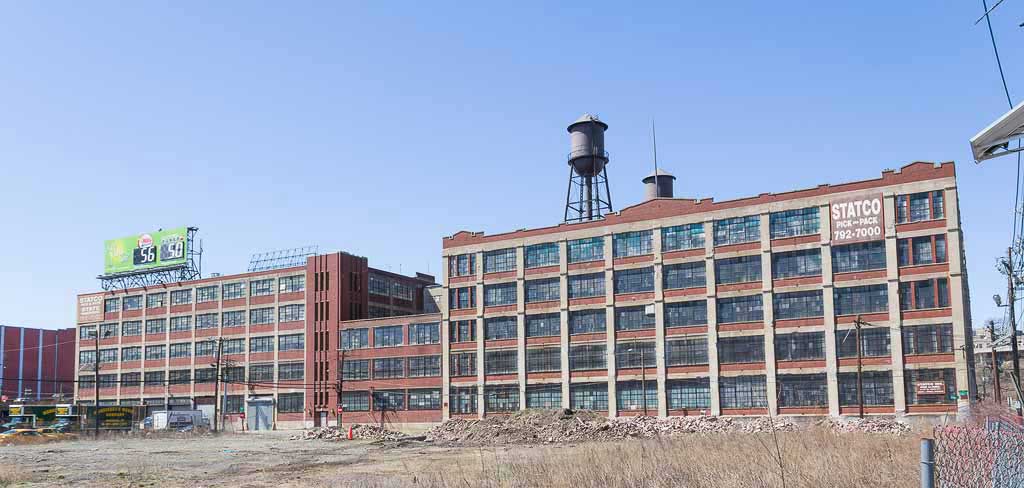
A building boom along the border of Jersey City and Hoboken doesn’t appear to be slowing down, and three new high rises and a two-acre park could soon be constructed around a historic industrial building as part of a partial adaptive reuse project.
Some call it Horseshoe, some prefer Lackawanna, and others refer to it as SoHo West. Whatever its moniker, the northernmost slice of Downtown Jersey City is heating up. Early last year, officials approved changes to the Jersey Avenue Park Redevelopment Plan that governs the area, creating a new district for a sprawling industrial property situated between Coles and Monmouth Streets just north of the I-78/Route 139 onramp.
The complex on the land was first constructed in the 1920s by the Continental Can Company and later housed Emerson Radio, who manufactured radios, records, and later televisions in the early days of those products. Currently used by StatCo as a storage facility, the utilitarian-style brick industrial building is eligible for the National Register of Historic Places but isn’t listed yet.
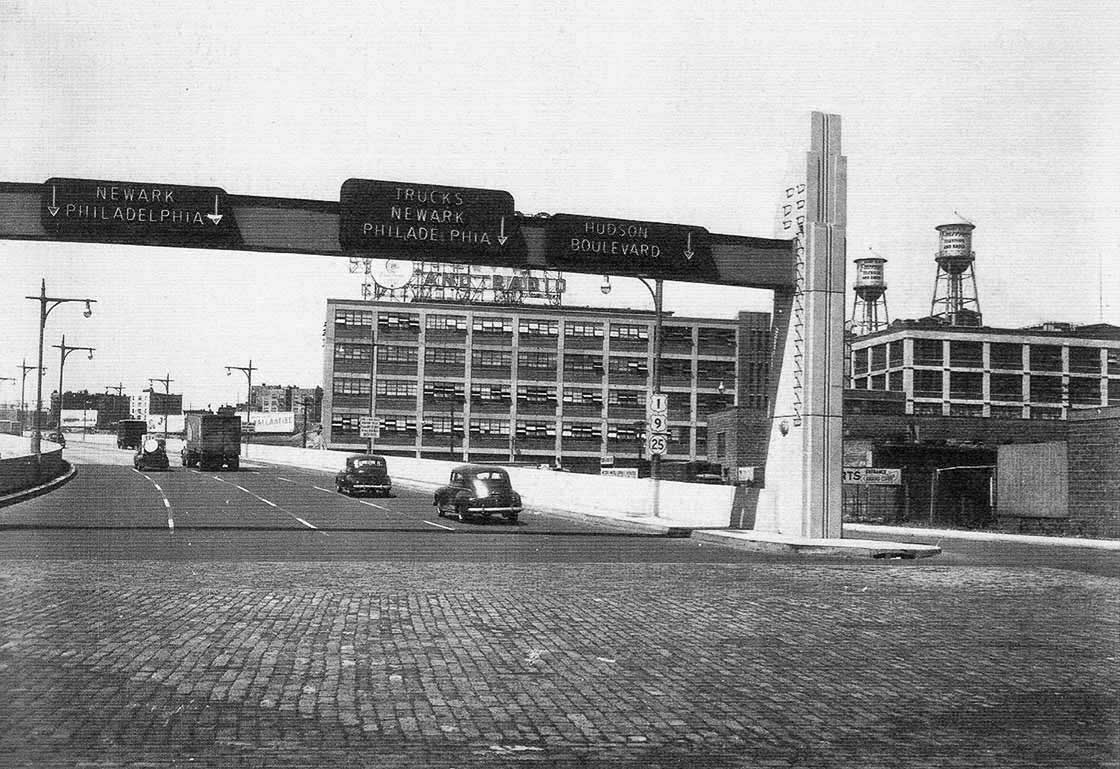
The property is currently owned by Statco Development Group LLC, a subsidiary of New York-based Newmark and Company. Working with Jersey City-based Urban Architecture LLC, they’ve drawn up plans to revamp and expand the factory with three towers, which will also create a massive amount of retail and add two acres of greenspace nearby.
The plans seek to demolish a portion of the existing factory between 14th and 15th Streets, but adaptively reuse the section between 15th and 16th Streets. The entirety of the project is set to include a total of 1,000 units, 526 parking spaces, 44,000 square feet of retail, and 23,900 square feet of public use space that the city has previously stated they would like to utilize as a police station.
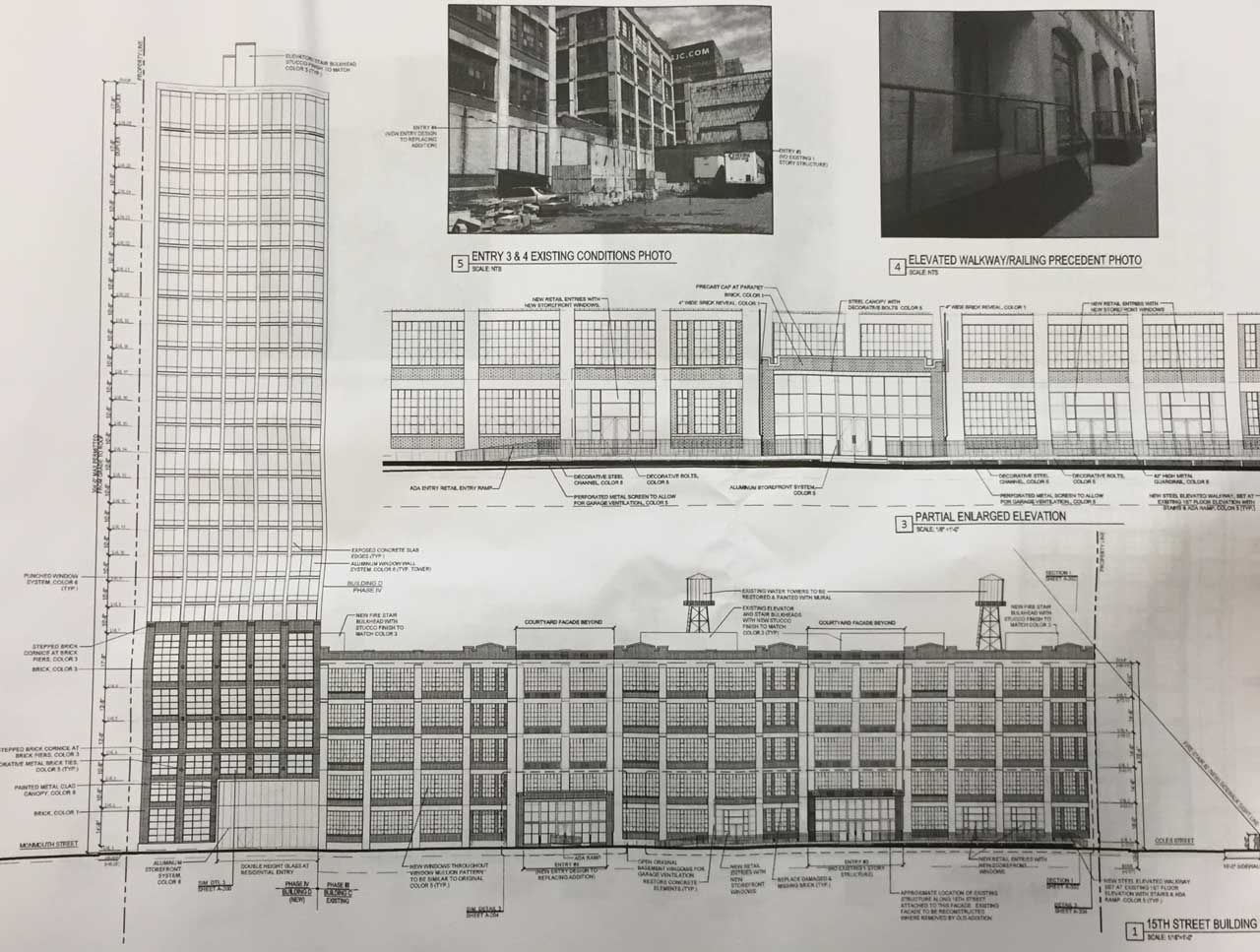
The breakdown of total units in the entire complex is 134 studios, 338 one bedrooms, 263 two bedrooms, 182 three bedrooms, and 83 four bedrooms. The development spans four phases, the first of which will construct a new 26-story tower set to rise 304 feet at the corner of Coles and 14th Streets. That portion will include 350 residential units, 307 parking spaces, 10,040 square feet of retail, and the 23,900-square-foot public use facility.
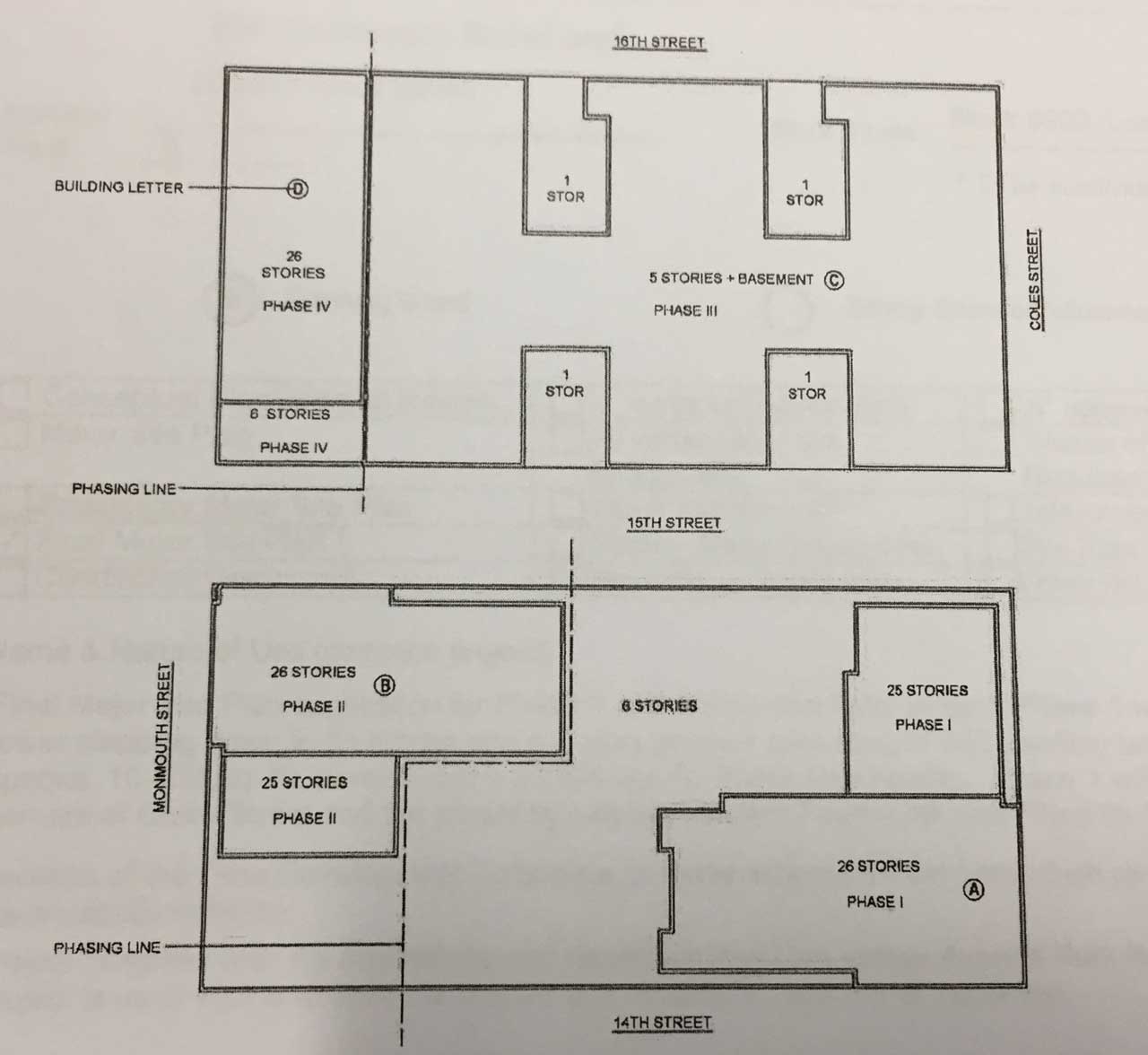
In addition, the first phase of the project will create Coles Street Park, to be built on land that was deeded to the city as part of the nearby 305 Coles Street development. Blueprints submitted to the planning board show new playground equipment, walkways, benches, grassy areas, sculpture artwork, a composite wood elevated sundeck, and even a potential train car set with tracks at the site.
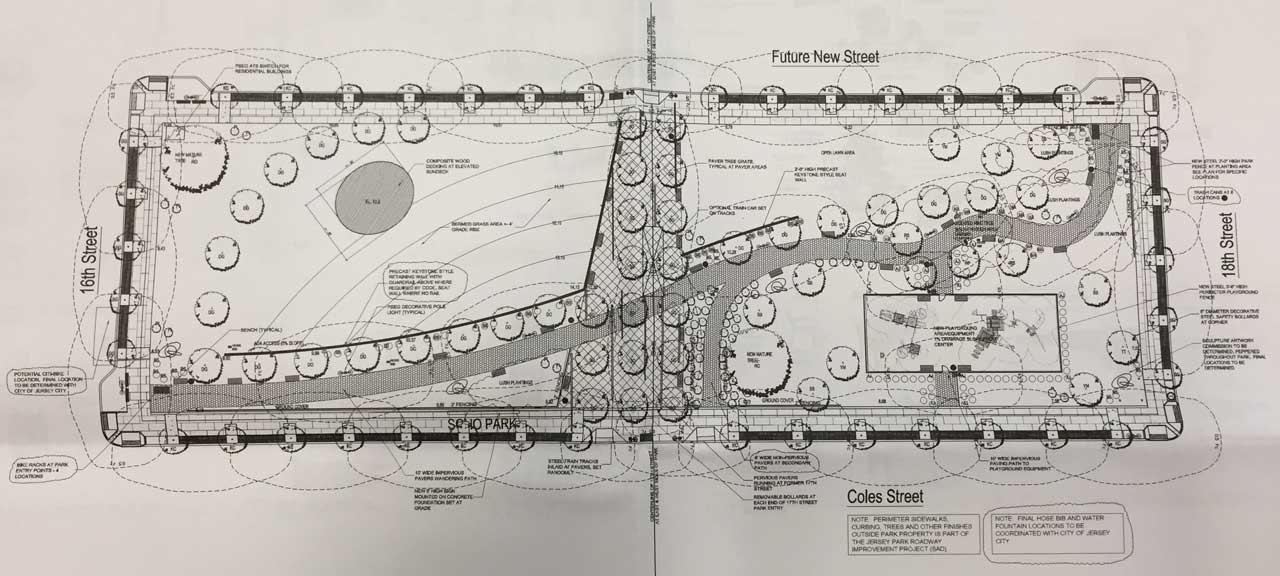
The second phase of the project calls for another 26-story tower to be built on the Monmouth Street side of the southern site that will be linked to the first tower by a shorter section with a six-story base. No retail is included in this phase, but 300 more living units and 159 parking spaces are included.
Phase three consists of rehabbing the existing radio factory into 150 apartments and 60 parking spaces, plus revamping the ground floor into over 34,000 square feet of retail. The fourth and final phase involves the construction of a final 26-story tower on the Monmouth Street side next to the historic property between 15th and 16th Streets, which will include another 200 residential units.
The project will utilize brick and steel on the new portions in keeping with the existing industrial feel, while the current factory gets new windows while maintaining much of its look. Water towers on top of the property are to be preserved and painted with murals, and the existing roof will be revamped to include amenities like a pool, fire pits, a movie projection screen, greenery areas, and an outdoor TV section. Parts of the 26-story towers are set to feature additional outdoor rooftop terrace space.
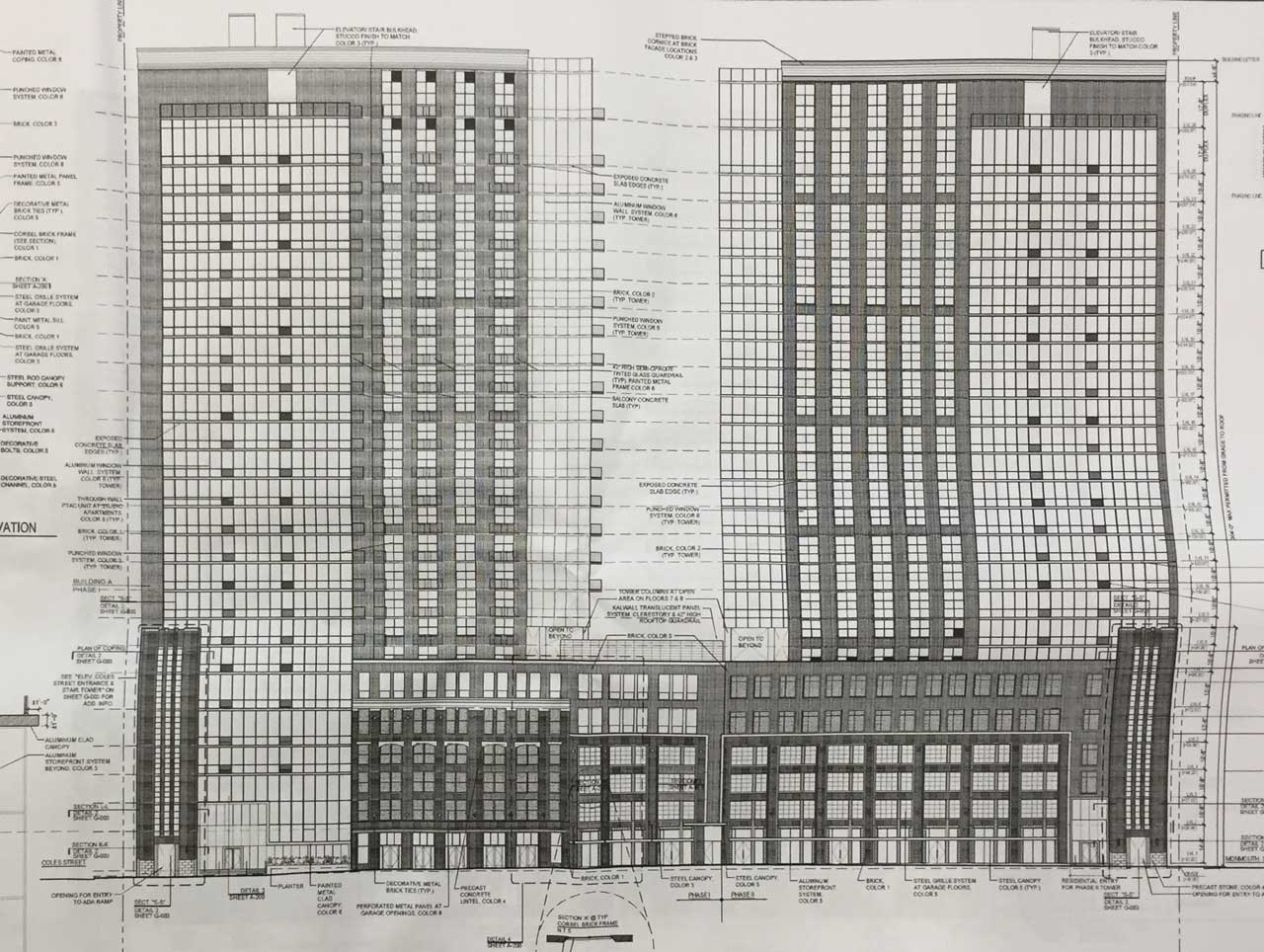
The redevelopment of the Emerson Radio Factory will relocate utilities currently present on the western portion of the property and as part of the approvals process, Newmark has subdivided the existing three lots at the property into eight. Four of them will serve as streets that will be rededicated, while the others will make up the plots set for development. Per the redevelopment plan, no affordable housing units are required, and none are included in the project.
Three separate applications related to the Emerson Radio redevelopment were approved with conditions by the city’s planning board on July 10, although no timeline has been announced for the project’s groundbreaking thus far.
